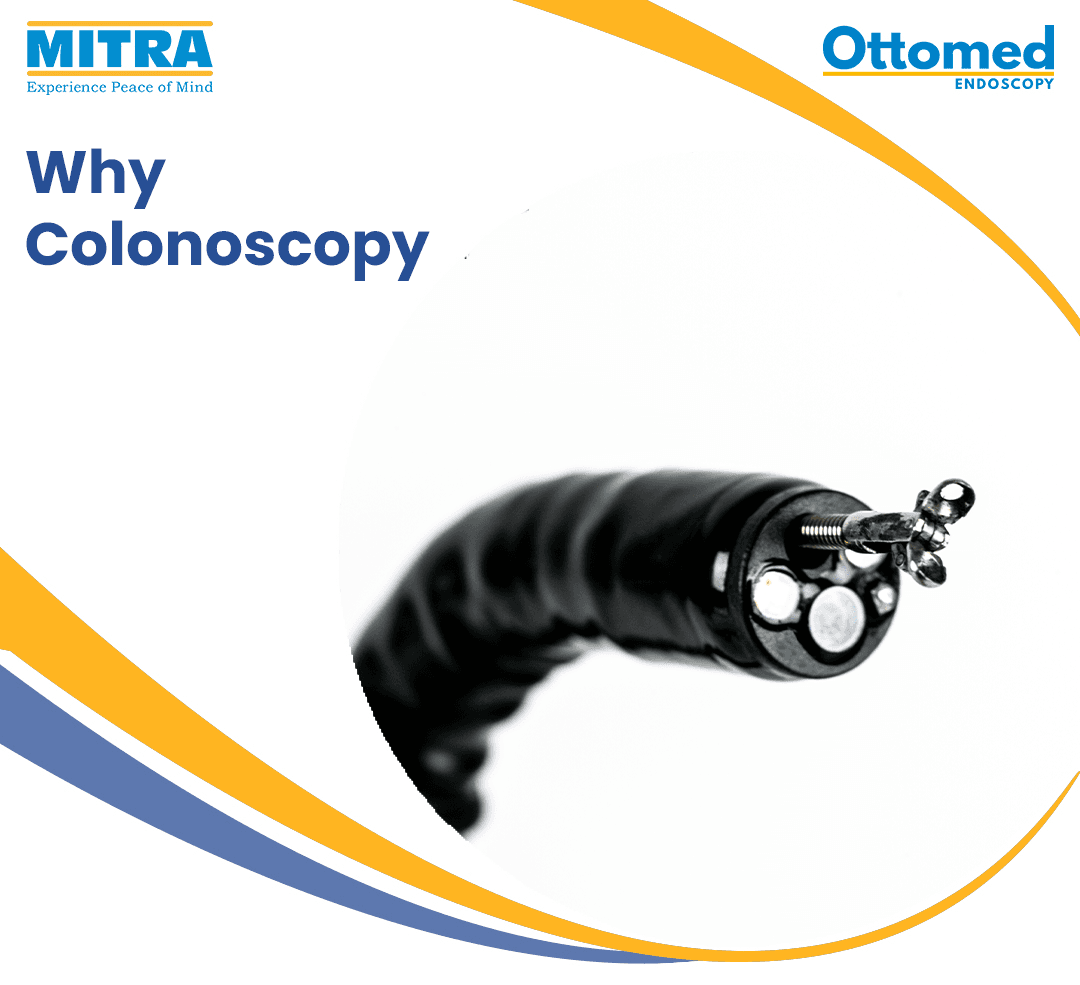Connect with Us
Looking for expert guidance on endoscopic solutions?
Reach out to us and explore imaging innovations that transform medical diagnostics.
Looking for expert guidance on endoscopic solutions?
Reach out to us and explore imaging innovations that transform medical diagnostics.
By MITRA GROUP |

Bowel cancer is a type of cancer that begins in the large intestine (colon). Sometimes called colon or rectal cancer, it is a disease in which abnormal cells in the colon or rectum divide uncontrollably, ultimately forming a malignant tumor. Colon cancer typically affects older adults, though it can happen at any age. Almost 9 out of 10 people with bowel cancer are over the age of 60. The three main symptoms of bowel cancer are blood in the stools (faeces), changes in bowel habit – such as more frequent, looser stools – and abdominal (tummy) pain.
There is no single cause of colon cancer, but there are a number of factors that can increase your risk. These include:
It usually begins as small, benign clumps of cells called polyps that form on the inside of the colon. Over time polyps can turn cancerous. Hence, doctors recommend regular screening tests to help prevent colon cancer by identifying and removing polyps before they turn into cancer. Several screening tests have been developed to help doctors detect bowel cancer such as stool tests and colonoscopy. Stool tests check the stool (faeces) for signs of cancer. These tests are less invasive, but they need to be done more often. Another option is a colonoscopy.
A colonoscopy is a medical procedure that involves examination of the large bowel with a colonoscope – a device that consists of a long & flexible tube with a tiny digital camera and light at one end. A colonoscopy is performed to detect colon polyps, which are growths on the lining of the colon that can sometimes be cancerous. The gastroenterologist carefully guides this instrument in various directions to look inside the colon. The picture from the camera appears on a monitor to provide a clear, magnified view of the colon lining.
A colonoscopy is a medical procedure that involves examination of the large bowel with a colonoscope – a device that consists of a long & flexible tube with a tiny digital camera and light at one end. A colonoscopy is performed to detect colon polyps, which are growths on the lining of the colon that can sometimes be cancerous. The gastroenterologist carefully guides this instrument in various directions to look inside the colon. The picture from the camera appears on a monitor to provide a clear, magnified view of the colon lining.
If you’re reluctant to make a decision, remember that any discomfort or embarrassment from colon cancer screening is temporary — and detecting problems early could save your life.
Ottomed is a reputed and established manufacturer of next-generation HD Video Endoscopy systems and ancillaries. Ottomed’s HD Video Colonoscope with mBLU technology delivers crystal clear images. The possibility of detecting and characterising lesions / polyps increases due to brighter & clearer endoscopic images provided by Image-Enhanced-Endoscopy (IEE) using mBLU which helps medical experts detect early-stage cancer and provide high quality lifecare, helping in deep detection of mucosal and sub-mucosal tissue resulting in better diagnosis and impact on the patient treatment outcomes.
Ottomed Endoscopy, a division of MITRA, is at the forefront of changing the face of endoscopy. Their vision is to make high quality life care products & services available and affordable for everyone.
By Ottomed |
By MITRA GROUP |
By MITRA GROUP |
By MITRA GROUP |